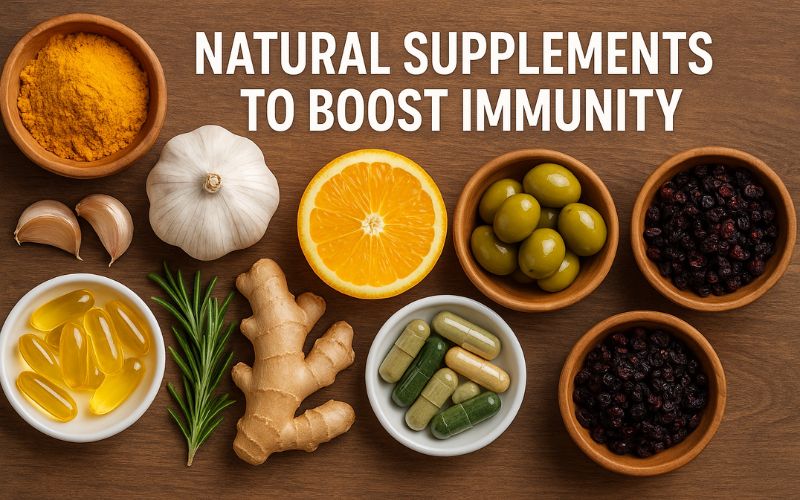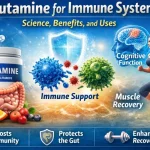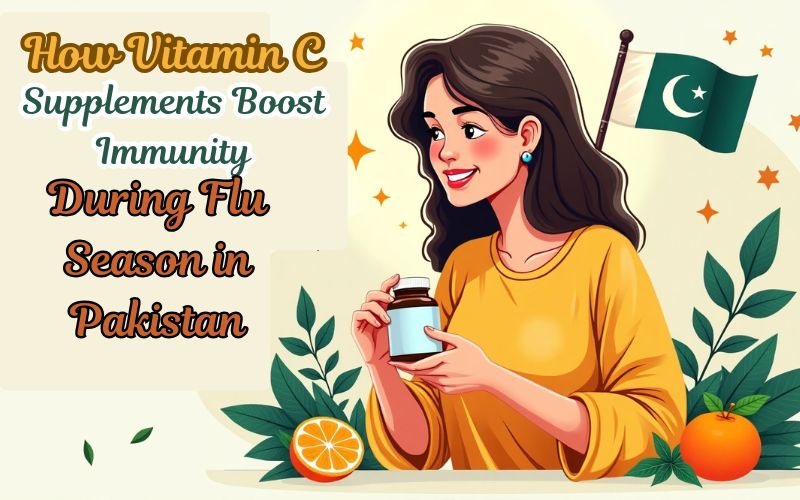In today’s health-conscious world, the importance of a resilient immune system can’t be overstated. From seasonal illnesses to daily environmental stressors, our immunity acts as the first line of defense. As more individuals seek holistic and side-effect-free solutions, natural supplements are emerging as powerful allies in immune health. Whether you’re navigating the cold and flu season, recovering from illness, or aiming for preventive care, boosting your immunity naturally is more than a trend—it’s a proactive lifestyle choice rooted in science and tradition.
Table of Contents
How the Immune System Works: A Simple Breakdown
Your immune system is a sophisticated network of cells, tissues, and organs that work together to protect your body. It’s divided into:
- Innate Immunity: Your first line of defense—rapid but non-specific.
- Adaptive Immunity: Develops over time, learning to recognize and target specific pathogens.
Factors like stress, lack of sleep, nutrient deficiencies, and chronic inflammation can compromise immune performance. This is where natural supplements come in—to support and optimize immune response through targeted nutrition and botanical support.
Top Natural Supplements to Boost Immunity Backed by Research
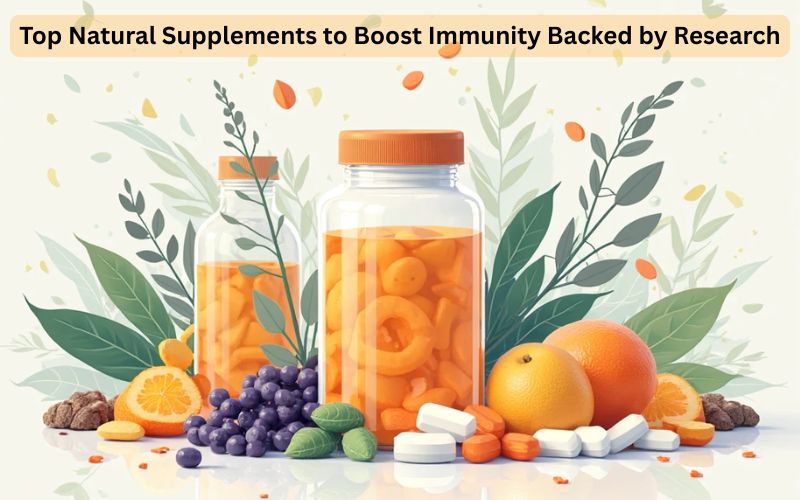
Vitamin C
A cornerstone of immune health, vitamin C supports white blood cell production and protects against oxidative stress. Supplementation can help reduce the duration and severity of colds when taken consistently, especially in active individuals or those under stress.
Vitamin D
Often overlooked, vitamin D plays a crucial role in immune regulation. Low levels are linked to increased susceptibility to infections. Supplementation is particularly important in regions with limited sun exposure or for people with darker skin tones.
Zinc
Zinc is essential for immune cell function and inflammation control. It has shown promise in shortening the duration of respiratory infections when taken at the onset of symptoms. It’s also key in wound healing and cellular repair.
Elderberry
Rich in antioxidants and flavonoids, elderberry is traditionally used to fight colds and flu. Studies suggest it can reduce the severity and duration of upper respiratory symptoms, likely due to its antiviral and anti-inflammatory properties.
Echinacea
This flowering plant has long been used to prevent and treat respiratory infections. Echinacea is believed to activate immune cells and may reduce the risk and duration of common colds when used appropriately.
Garlic
More than a kitchen staple, garlic has potent antimicrobial and immune-modulating properties. Its active compound, allicin, has been shown to enhance the function of white blood cells and reduce the risk of infection.
Astragalus Root
A staple in traditional Chinese medicine, astragalus is prized for its immune-stimulating and adaptogenic effects. It may increase white blood cell count and improve resistance to upper respiratory infections.
Andrographis
Known for its bitter taste and strong antiviral effects, andrographis has been studied for its role in reducing cold and flu symptoms. It is thought to stimulate the immune system while acting as a natural anti-inflammatory.
Probiotics
A healthy gut microbiome is closely linked to a strong immune response. Probiotics—live beneficial bacteria—help regulate immune function and prevent harmful pathogens from gaining a foothold in the digestive tract.
Medicinal Mushrooms (Reishi, Shiitake, Maitake)
These fungi are packed with beta-glucans and antioxidants. Reishi supports stress resilience and immune modulation, while Shiitake and Maitake may enhance white blood cell activity and overall immune readiness.
Herbal Remedies with Immune-Enhancing Properties
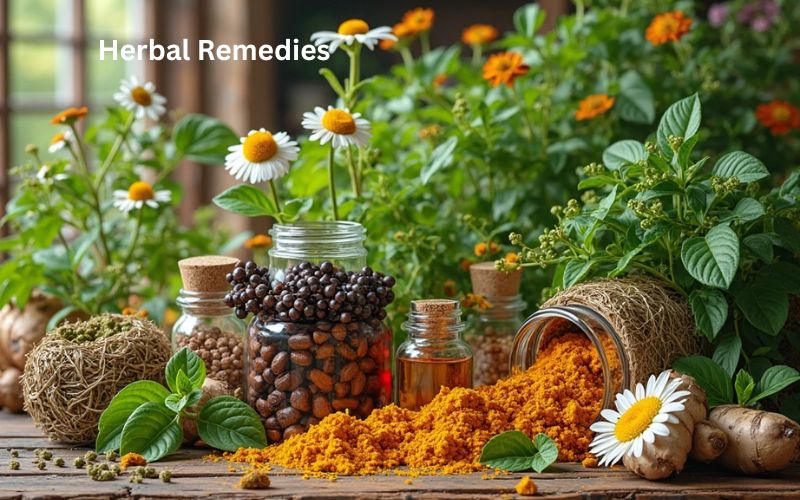
Ashwagandha
An adaptogenic herb from Ayurveda, Ashwagandha helps the body cope with stress—a major immune suppressant. It also supports energy levels and overall immune resilience.
Tulsi (Holy Basil)
Tulsi is revered for its antimicrobial, antioxidant, and stress-relieving properties. It has shown potential in boosting immune response and protecting against respiratory infections.
Giloy (Tinospora cordifolia)
Known as “the root of immortality” in Ayurveda, Giloy supports detoxification and boosts the immune system by enhancing white blood cell function and reducing inflammation.
Adaptogens for Immune Resilience and Stress Reduction
Adaptogens are natural substances that help the body adapt to physical, emotional, and environmental stressors. Chronic stress suppresses immune function, making adaptogens an essential part of holistic immune care.
- Rhodiola Rosea supports stamina and stress recovery.
- Siberian Ginseng may improve immune performance and physical endurance.
- Cordyceps mushrooms support respiratory function and energy metabolism, especially useful for athletes and aging populations.
Are Natural Supplements Enough? Importance of Lifestyle Factors
Supplements are not magic pills—they’re most effective when combined with foundational lifestyle habits:
- Sleep: Aim for 7–9 hours of quality sleep to support immune cell regeneration.
- Nutrition: A balanced diet rich in fruits, vegetables, whole grains, and healthy fats fuels immune function.
- Hydration: Water supports lymphatic drainage and toxin elimination.
- Exercise: Moderate, regular physical activity enhances immune surveillance.
Think of natural supplements as part of a wellness toolkit—not a standalone solution.
How to Choose Quality Immune Support Supplements
Not all supplements are created equal. Here’s what to look for:
- Purity and Potency: Opt for supplements that are free of fillers, heavy metals, and artificial ingredients.
- Bioavailability: Choose forms that are easily absorbed by the body (e.g., liposomal vitamin C, zinc picolinate).
- 3rd Party Testing: Look for certifications that ensure quality and ingredient integrity.
- Transparency: Reputable brands disclose full ingredient lists and source origins.
Avoid overdosing—more isn’t always better. Stick to evidence-backed dosages unless directed by a healthcare provider.
Precautions and Who Should Avoid Certain Natural Supplements
Natural doesn’t always mean risk-free. Keep these precautions in mind:
- Autoimmune Disorders: Immune-stimulating herbs may exacerbate symptoms.
- Pregnancy and Breastfeeding: Not all herbs are safe during this period.
- Children: Pediatric dosages differ significantly from adults.
- Medication Interactions: Supplements like garlic and ginseng may interfere with blood thinners or immunosuppressants.
Always consult a healthcare professional before starting any new supplement regimen, especially if you have underlying health conditions.
Integrating Immune Boosters into Your Daily Wellness Routine
Here’s how to make immune support a daily habit:
- Morning: Vitamin C + Probiotics with breakfast.
- Midday: Adaptogens like Ashwagandha or Rhodiola with lunch.
- Evening: Zinc + Vitamin D + Herbal tea (like Tulsi or Elderberry) before bed.
You can also rotate seasonal herbs—such as Echinacea in fall/winter—to align with immune stress periods. Keep a journal to track energy levels, illness frequency, and supplement effects.
Final Thoughts: Building Immune Strength Naturally, Long-Term
Natural supplements offer a powerful, low-risk way to support your body’s defenses. However, they work best as part of a comprehensive, lifestyle-based approach to wellness. By combining targeted supplementation with quality sleep, whole food nutrition, physical movement, and stress management, you can build a resilient immune system that supports your health for the long haul.














